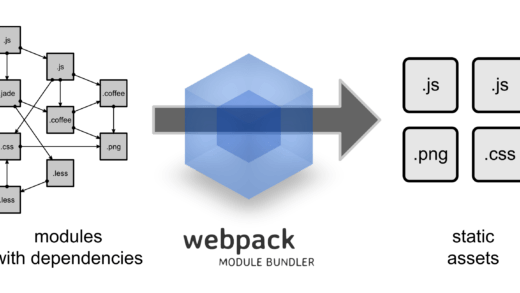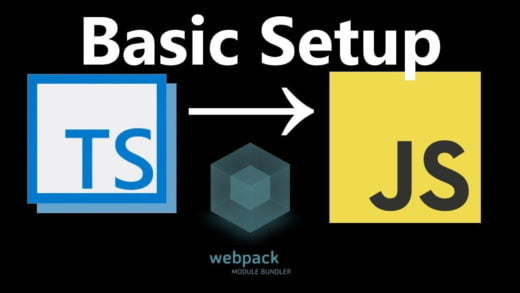Custom software development for the real estate industry offers powerful tools for enhancing business efficiency and scaling operations. Whether it’s managing client relationships or streamlining transactions, the right software can be a game-changer. This guide will walk you through the what, why, and how of developing these solutions, helping you make informed decisions as you reinvent your real estate business.
Key Takeaways
- Custom real estate software development focuses on creating tailored platforms for workflow management, helping businesses manage leads, automate tasks, and integrate seamlessly with other business systems like MLS and marketing platforms.
- The variety of custom real estate software includes property management platforms, CRM and ERP systems, IDX technologies, and cutting-edge data analysis tools that leverage artificial intelligence and machine learning for comprehensive business insights.
- Innovations such as virtual tours, augmented reality features, AI-powered chatbots, and advanced marketplace functionalities are integral in delivering enhanced customer experiences and provide a competitive advantage in the real estate sector.
What is Custom Real Estate Software Development?
The essence of real estate software development lies in crafting specialized platforms designed to cater to the distinct necessities of real estate businesses. For example, custom-designed Real Estate CRM software is purpose-built to streamline a wide array of operations including managing workflows, observing deadlines, handling documentation, and enhancing communication with potential leads and existing clients. This integration between various company processes vastly improves efficiency and productivity levels.
Tailor-made CRM systems for the realm of real estate are constructed with functionalities that precisely tackle areas such as contact organization, sales management, and lead generation activities. These systems enhance operational fluency by simplifying lead management procedures while also automating mundane tasks which results in enriched interactions with clients on an individual level.
As expansion becomes imperative for growing enterprises within the industry. There’s a heightened need for scalable solutions provided by custom-developed CRMs. Such flexibility enables these advanced tools to be effortlessly merged with other vital business applications including MLS listings access points or email marketing mechanisms thereby ensuring uninterrupted data exchange.
Engaging in constructing personalized CRM frameworks entails several critical phases.
- Outlining detailed requirements
- Architecting the system design
- Selecting appropriate technology stacks
- Actual construction phase (development)
- Rigorous testing protocols
6 Methodical Integration into existing structures.
7 Efficient data migration strategies.
8 Comprehensive user instruction initiatives.
9 Uncompromised quality assurance measures.
Each step plays an indispensable role guaranteeing that the final product resonates flawlessly with every specific requirement dictated by the intricate workings within any given real estate enterprise.
Types of Custom Real Estate Software
Software solutions tailored to the real estate sector encompass a variety of tools, including platforms for multiple listing services (MLS), interactive virtual tours, and dedicated mobile apps. These are Complemented by compliance monitoring systems and risk management applications designed specifically for this industry’s needs. Such custom software supports various facets of the real estate domain—from commercial property businesses to residential agencies, land developers to brokerage firms—enabling them to create proprietary programs that resonate with their unique business objectives.
Property management software stands out as a key tool in assisting property managers with overseeing both residential and commercial properties efficiently. By consolidating crucial functions like tenant coordination, lease administration, and secure document storage within one platform, these systems enhance operational effectiveness. Inherent security measures such as data encryption protocols and user authentication processes play an integral role in protecting sensitive information pertaining to clients’ businesses.
Extending the utility belt is Customer Relationship Management (CRM) and Enterprise Resource Planning (ERP) technology which integrates customer interaction alongside core organizational operations spanning finance control panels through inventory handling right up to human resource supervision—all aiming at harmonizing various data silos across MLS databases, financial accounting suites, and online transaction gateways.
Artificial Intelligence (AI) backed analytics engines deliver insights via extensive reporting features thereby aiding companies in scrutinising their overall performance metrics while formulating critical strategic decisions. The evolution towards cloud-infrastructure has also gained traction providing scalable market analysis capabilities together with robustly managed service models.
Lastly, the implementation of Internet Data Exchange (IDC ) streamlines accessibility on reality websites granting public viewing permissions over MLS entries leading advancements targeting search functionality enhancement along with enriched display characteristics.
Essential Features of Custom Real Estate Software
Custom real estate software is designed to automate pivotal processes like property listing, client interactions, and handling transactions. This automation minimizes the need for manual input while enhancing precision and efficiency in operations.
Incorporated within this software are vital tools for property management and lead generation that play a critical role in operating a successful real estate business. They proficiently oversee properties, cultivate leads, and help turn those leads into promising clients.
An integral component of custom real estate software is a comprehensive CRM system. It facilitates efficient lead management through sorting and ranking leads to fully capitalize on potential prospects.
Innovations in Real Estate Software Development
The field of real estate software development is undergoing significant transformation, driven by cutting-edge innovations. The integration of virtual and augmented reality into mobile app development has resulted in groundbreaking features such as:
- Engaging virtual tours that offer immersive experiences for potential buyers
- Visualization tools to personalize space according to buyer preferences
- Interactive property previews through augmented reality on smartphones
- Artificial intelligence and machine learning applications that refine market data analysis and trend forecasting
- Customer support enhancements via AI-driven chatbots
The incorporation of advanced technologies like API integrations, MLS connectivity, big data algorithms, and intelligent search capabilities powered by artificial intelligence are giving a substantial competitive advantage within the real estate marketplace.
These technological advancements have had an immensely positive impact on customer service delivery for both agents and their clientele across various segments of the real estate industry. They significantly enhance the way in which companies conduct transactions within this sector.
Features aimed at improving user experience continue to emerge – these include sentiment analysis tools for evaluating client attitudes towards properties, predictive pricing algorithms, and auto-translating functionalities for multilingual property descriptions. Unified databases consolidating disparate sources of information critical to minimize financial losses from miscalculated valuations or misguided investments decisions.
Adherence to complex regulatory frameworks concerning data governance becomes imperative – achieved through explicit compliance policies establishment. Cataloging pertinent data meticulously while ensuring top-notch security protocols;
Employing innovative technology like AI not only ensures superior quality control over information, but also boosts operational efficiency markedly.
7 Core Steps in Development a Custom Software for Real Estate
Custom software development involves several key steps. Let’s talk about them in more details.
Requirement Gathering. The journey of developing custom real estate software begins with defining the specific requirements, including business objectives and necessary features. Development team can consult with business analysts, conduct market and competitor research, and interview stakeholders to have a better understanding of project requirements. Clarity at this stage sets the foundation for a successful development process.
Planning. During the second step you need to clearly define the project scope, objectives, and deliverables. Create a detailed project plan, including timelines, milestones, and resource allocation. Also, during the planning stage you can develop wireframes and prototypes to visualize the software layout and core functionality.
Technology Stack Selection. The third step is all about selecting appropriate technologies for front-end, back-end, database, and other components. Ensure the technology stack supports scalability and has robust security features.
Development. After tech stack is selected, you can start the step number four. Implement the user interface based on the design. Develop the server-side logic, APIs, and database interactions. Integrate third-party services, such as payment gateways or MLS systems.
Testing. The fifth step is crucial and should not be overlooked. Test individual components for functionality. Ensure all components and integrations work together seamlessly. Finally, conduct testing with real users to gather feedback and make necessary adjustments before launch.
Deployment. The sixth step starts with setting up the production environment and preparing for deployment. After that, launch your software to the production environment. Monitor the software performance and optimize as needed.
Maintenance and support. During the seventh step you need to provide regular updates and improvements based on user feedback and market changes. Offer ongoing technical support to your customers to resolve any issues that may arise.
Summary
Custom real estate software development offers tailored solutions that align with a real estate business’s specific goals and processes. From automation and property management tools to lead generation and CRM systems, these solutions streamline workflows, improve efficiency, and ultimately enhance customer satisfaction.
As technology advances, innovations like virtual tours, AI-driven analytics, and unified data repositories are revolutionizing the real estate software landscape. It’s an exciting time for businesses ready to embrace these developments and catapult their operations to the next level.
Frequently Asked Questions
What is custom real estate software development?
The development of custom real estate software involves crafting specialized technological solutions to meet the distinct demands of a real estate business or agency, incorporating contemporary trends and advancements in technology for an optimized and proficient system.
What are the advantages of custom real estate software development?
The development of custom real estate software ensures that companies receive a personalized solution designed to fit their unique objectives and operational procedures, which enhances efficiency and simplifies workflow processes within the realm of real estate.
What are some common features of custom real estate software?
Custom real estate software frequently encompasses a range of functionalities such as management systems for properties, tools to facilitate the generation of leads, capabilities for reporting and billing, mobile applications, platforms dedicated to property listings, virtual tour features, and solutions tailored to managing customer relationships. These components are integrated with the aim of enhancing efficiency in operations and elevating the experience provided to clients within the realm of real estate.
How should one choose a custom real estate software development partner?
When selecting a partner for custom real estate software development, it is crucial to start by identifying your specific needs. Follow this up by thoroughly researching potential collaborators and scrutinizing their track record as well as proficiency in the field of real estate software. Delve into their portfolio and related case studies, while also seeking feedback from previous clients to gain a deep understanding of their competency.
Doing so will position you favorably in securing an appropriate collaborator who can meet the unique demands of your real estate software development initiative.
What are the types of custom real estate software?
There are primarily two forms of custom real estate software available: one is web-based applications designed for services such as listings and property management, while the other includes mobile apps specifically created for use on smartphones and tablets.
It’s important to select the category that aligns most effectively with your particular business requirements in real estate.



















